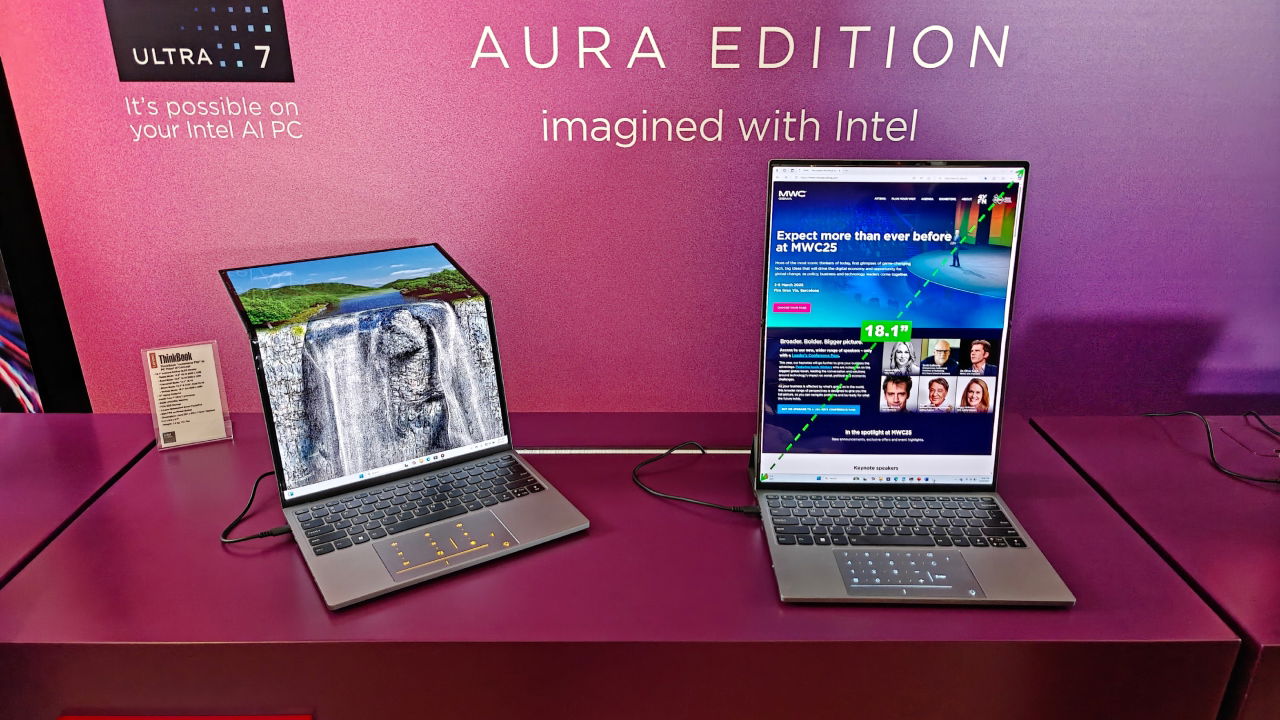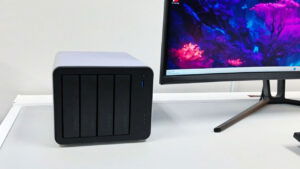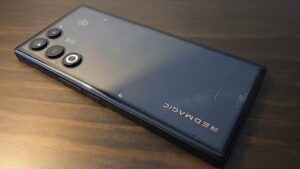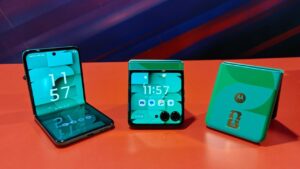Lenovo is set to make waves at MWC 2025 with a series of concept devices that are sure to turn heads in Barcelona this year.
Mobile World Congress is one of many conventions that encourage companies to give sneak peeks of what the future can hold. Lenovo has taken this opportunity seriously, and so soon after the world’s first rollable display, the ThinkBook Plus Gen 6, at CES 2025.
MWC 2025 brought not one but EIGHT concept announcements from Lenovo, the ThinkBook “codename Flip” AI PC, the Magic Bay ecosystem’s AI-powered concepts, the ThinkBook 3D Laptop, the Lenovo AI Ring, Yoga Solar PC, Solar Power Kit for Yoga, Lenovo AI Stick and finally their Hybrid Dimensional 34-inch Curved Monitor.
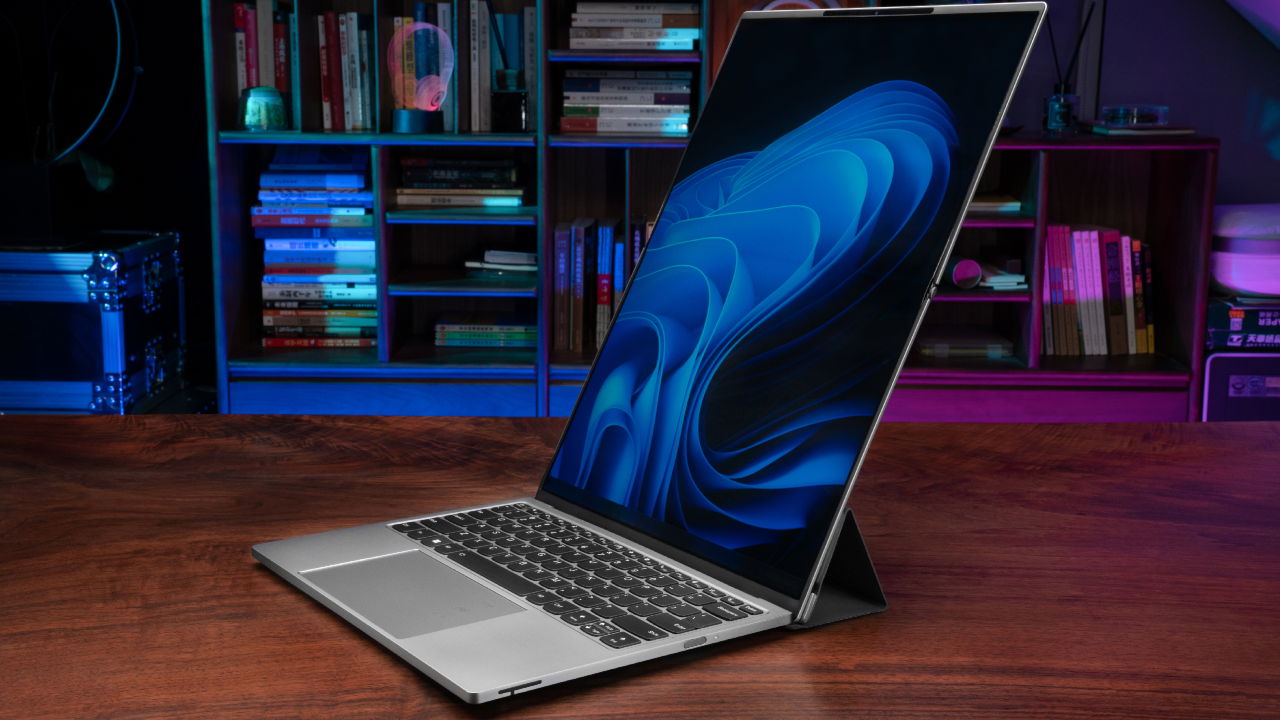
The ThinkBook “codename Flip” AI PC Concept will likely be the most popular this year. It introduces a folding OLED display that changes from a compact 13-inch laptop to an 18.1-inch expanded device. Their design supports five distinct modes: Clamshell Mode for traditional tasks, Vertical Mode for document review, Share Mode for dual-display collaboration, Tablet Mode for creative workflows, and Read Mode for distraction-free reading.
With AI-enhanced multitasking and Workspace Split Screen capabilities, users can run multiple applications side by side without needing external monitors. Powered by an Intel Core Ultra 7 processor, 32GB LPDDR5X memory, and PCIe SSD storage, it promises fast and easy AI performance.
Our clear showstopper of Lenovo’s MWC 2025 lineup is, without question, the Yoga Solar PC Concept, an ultraslim laptop that harnesses solar energy to power its operations. At just 15 mm thin and weighing 1.22 kg, the concept device features advanced solar panels with more than 24 percent energy conversion efficiency. The laptop supposedly makes it possible to watch one hour of video playback in only 20 minutes of direct sunlight. Lenovo’s Dynamic Solar Tracking system constantly measures the panel’s current and voltage to optimize energy harvesting, even in low-light conditions.
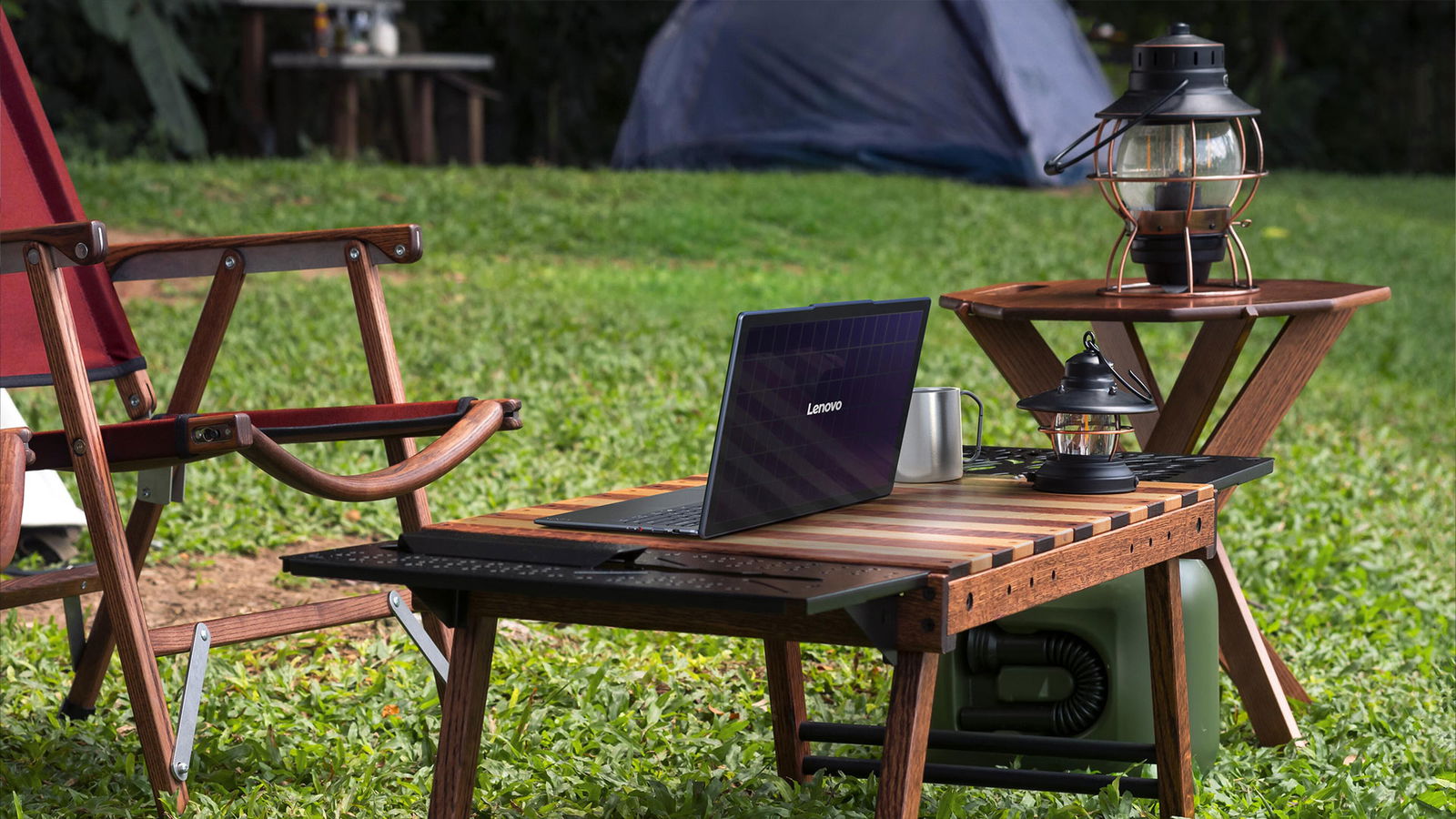
Taking note from the solar-powered laptop, the Solar Power Kit for Yoga concept features a detachable USB-C solar panel that can be affixed to bags, backpacks or even trees, utilizing Maximum Power Point Tracking technology to optimize solar energy conversion for mobile charging wherever sunlight is available.
Lenovo’s Modular and Immersive Proof of Concept ideas were also announced. Lenovo boasts that the ThinkBook 16p Gen 6 is built for expandability and modularity, featuring the Magic Bay ecosystem. Starting with Lenovo’s display concepts, the Magic Bay Dual Display Concept is a dual 13.3-inch attachable secondary screen that transforms the ThinkBook 16p into a multi-screen workstation. Suggested uses are for data visualization, content editing, and collaborative projects. The Magic Bay 2nd Display Concept is a compact 8-inch screen serving as a dashboard dedicated to AI, giving easy access to productivity tools, messaging apps, and AI-generated insights.
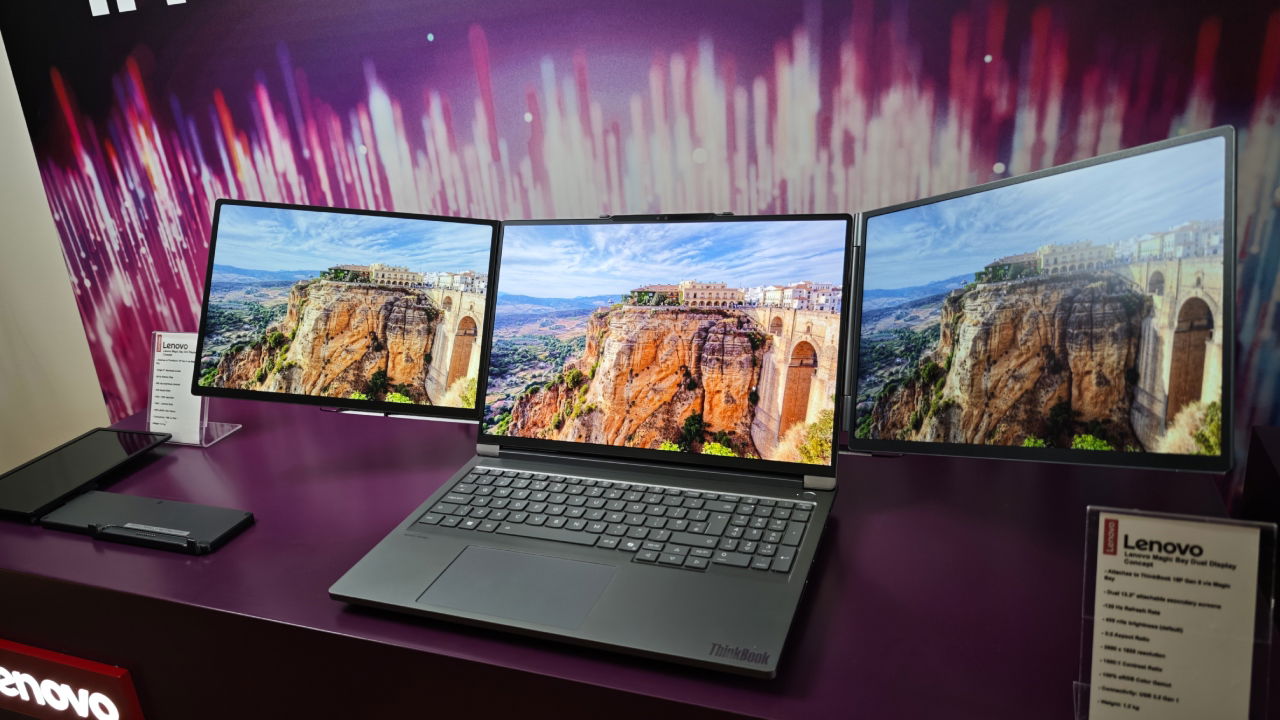
The Magic Bay “codename Tiko” Concepts are a bit more out there than the others. Magic Bay “codename Tiko” is an “emotional interaction companion that displays real-time emoji-style status, provides interactive gesture-based responses.” How this plays out in person remains to be seen. The Magic Bay “codename Tiko Pro” Concept offers a dedicated AI-powered display with a real-time widget interface and Lenovo AI Now integration, acting as an always-on assistant to streamline information management—a little more productive than the emotional companion.
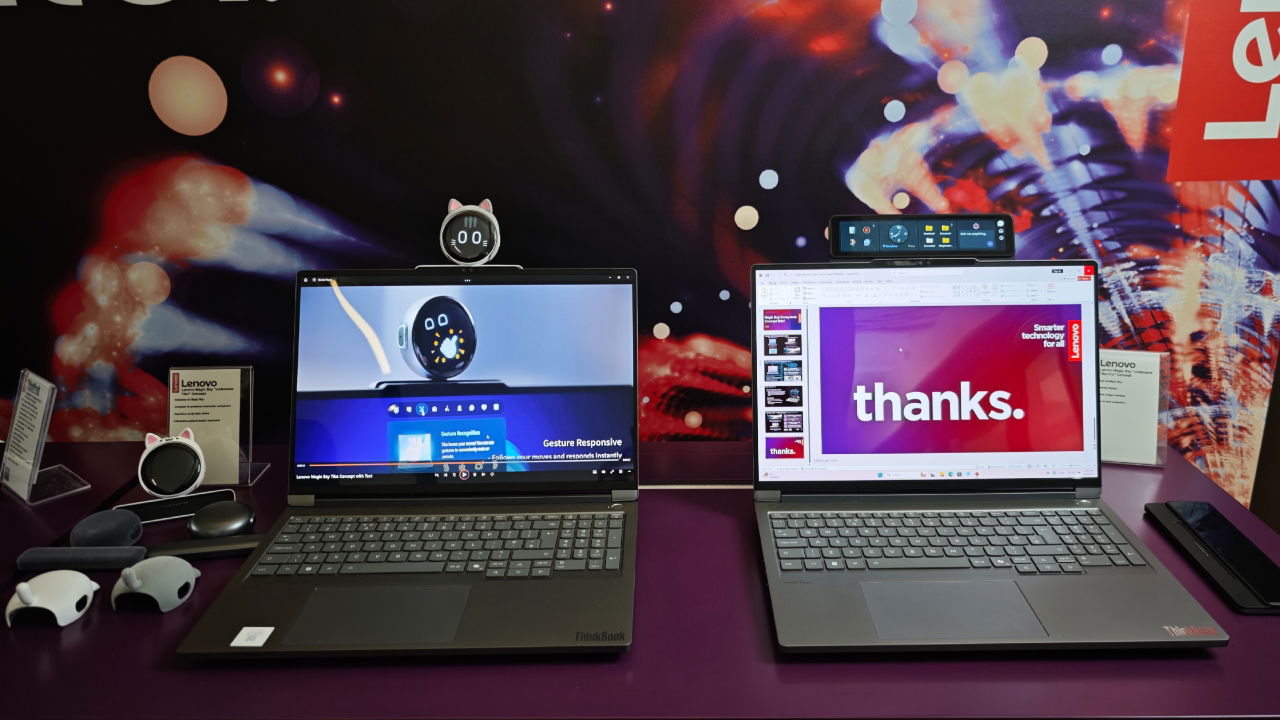
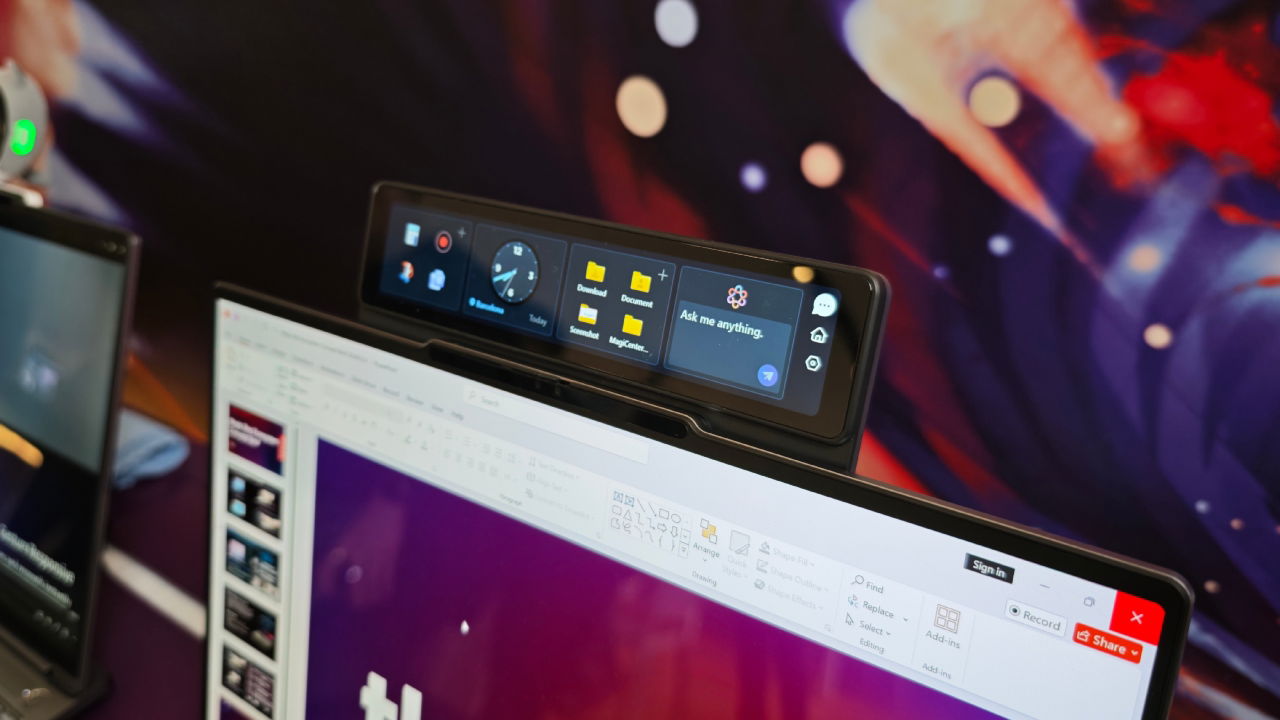
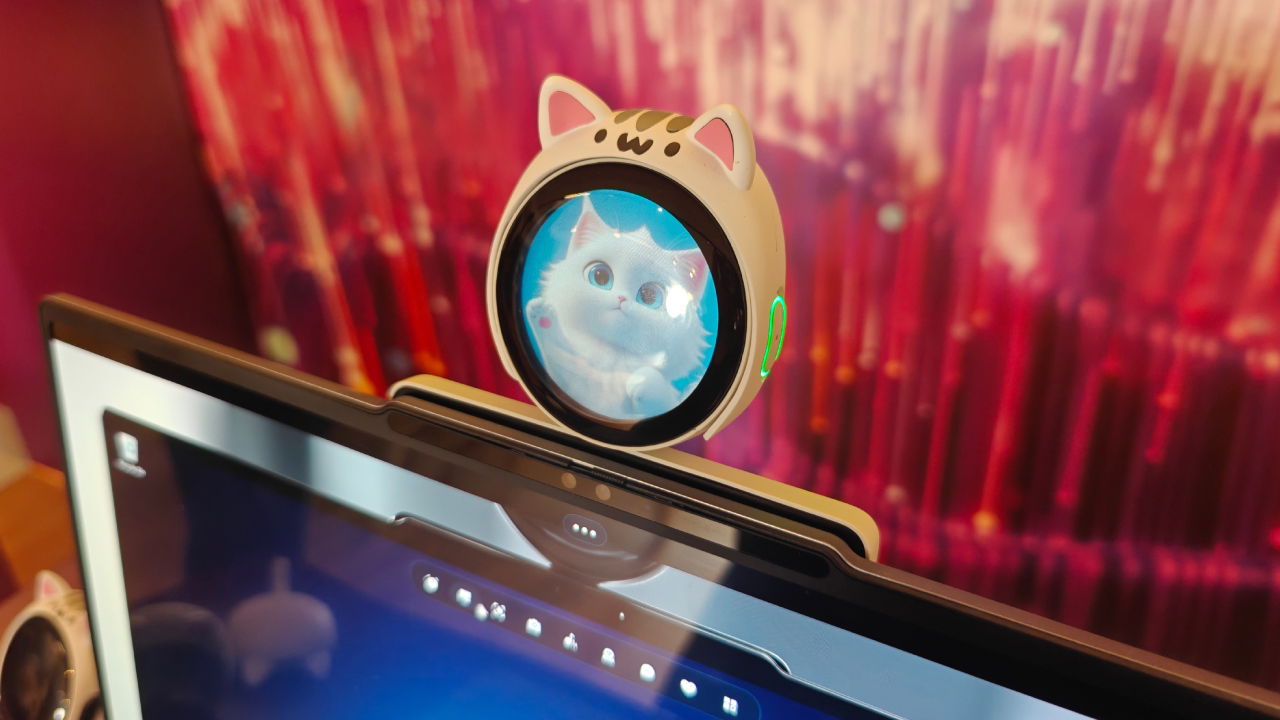
Lenovo brought some other interesting accessory options to this year’s showcase, too. The company unveiled an AI Display with NPU Inside, representing another breakthrough by incorporating a discrete neural processing unit that not only enhances the monitor’s capabilities but also empowers non-AI PCs with artificial intelligence computing power, enabling them to run large language models and respond to user commands through intelligent analysis.
For anyone looking to upgrade existing hardware, the Lenovo AI Stick concept offers a plug-and-play solution, delivering 32 TOPS of NPU performance via a USB-C Thunderbolt connection to bring AI capabilities to older devices lacking built-in neural processors.
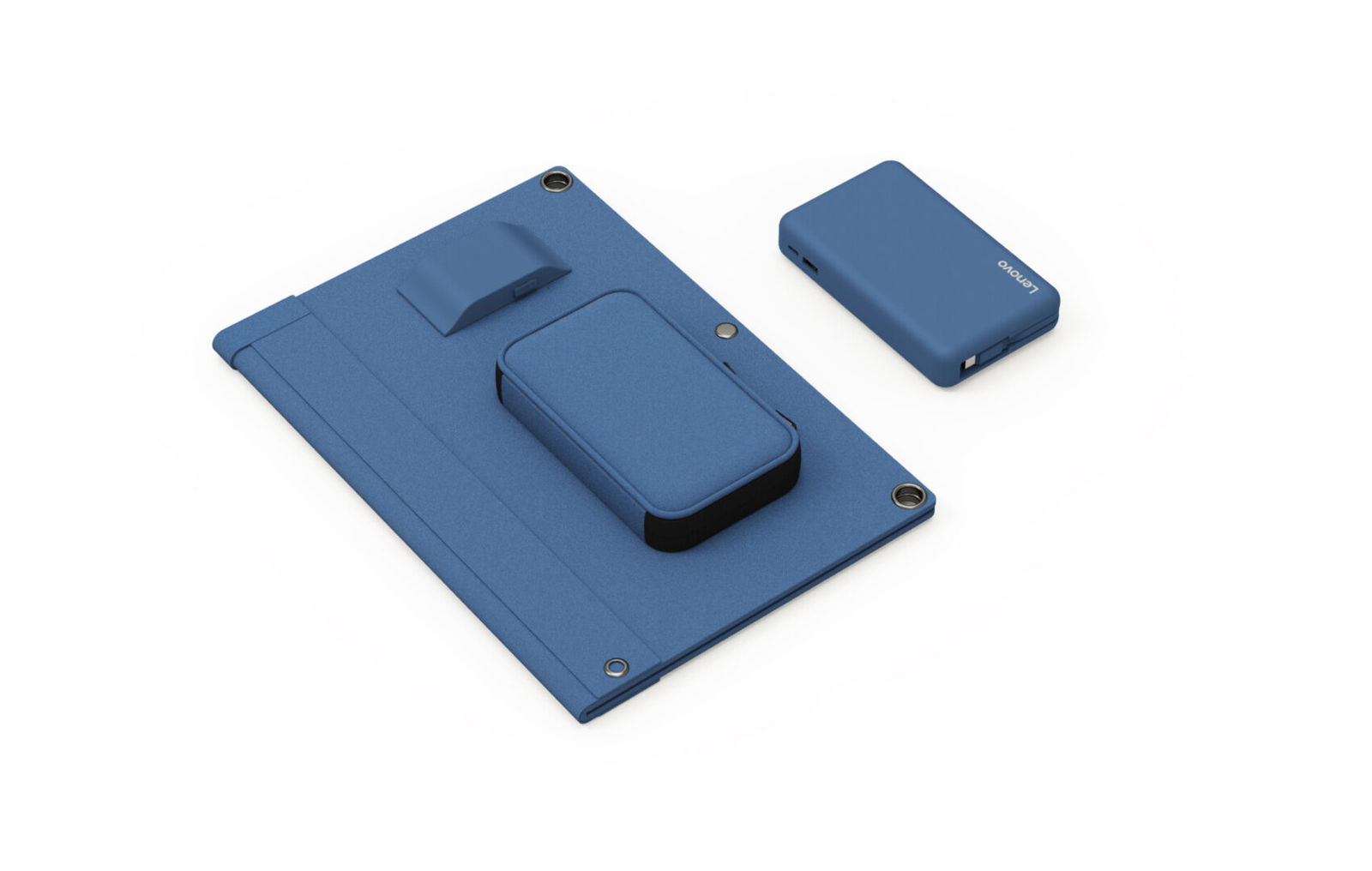
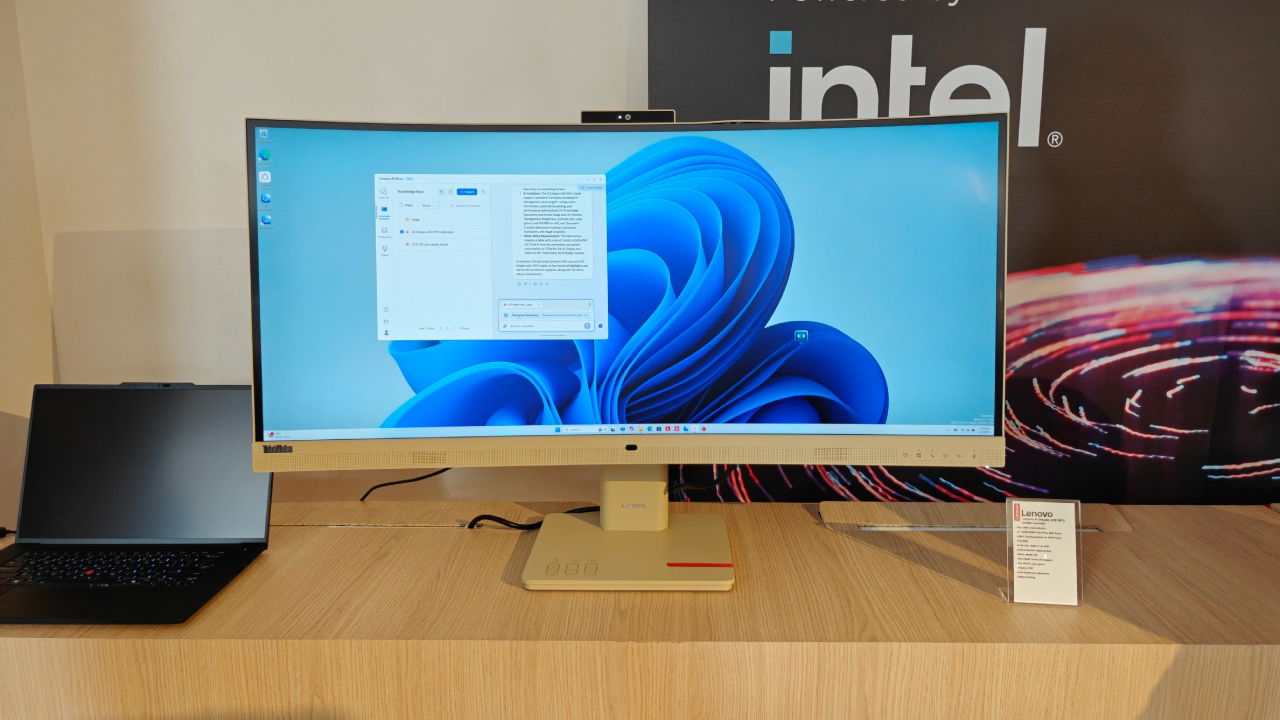
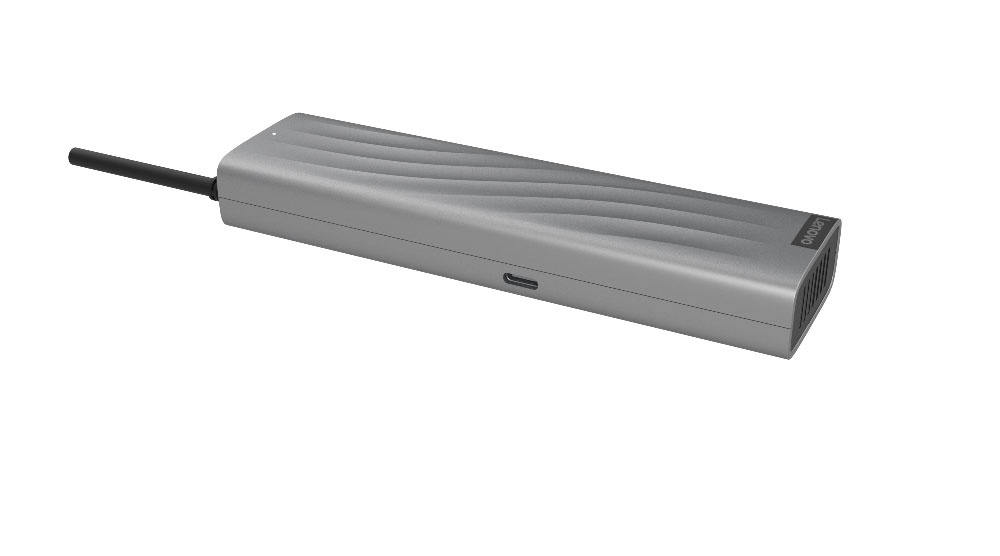
It wouldn’t be a concept article without some 3D! The ThinkBook 3D Laptop Concept boasts 3D computing with a glasses-free hybrid display, allowing users to switch between 2D and 3D modes thanks to the Directional Backlight 3D solution. It features a 3.2K resolution display, which they suggest for designers, engineers and media professionals.
The Lenovo AI Ring proof of concept pairs well with this, as it features gesture-based control for interactive UI adjustments, touch-free navigation and 3D model manipulation. Equipped with high-precision sensors and advanced AI-driven motion tracking, the AI Ring enables users to effortlessly rotate objects, zoom in and out, and interact with 3D environments using simple hand gestures, taking spatial computing to the next level.
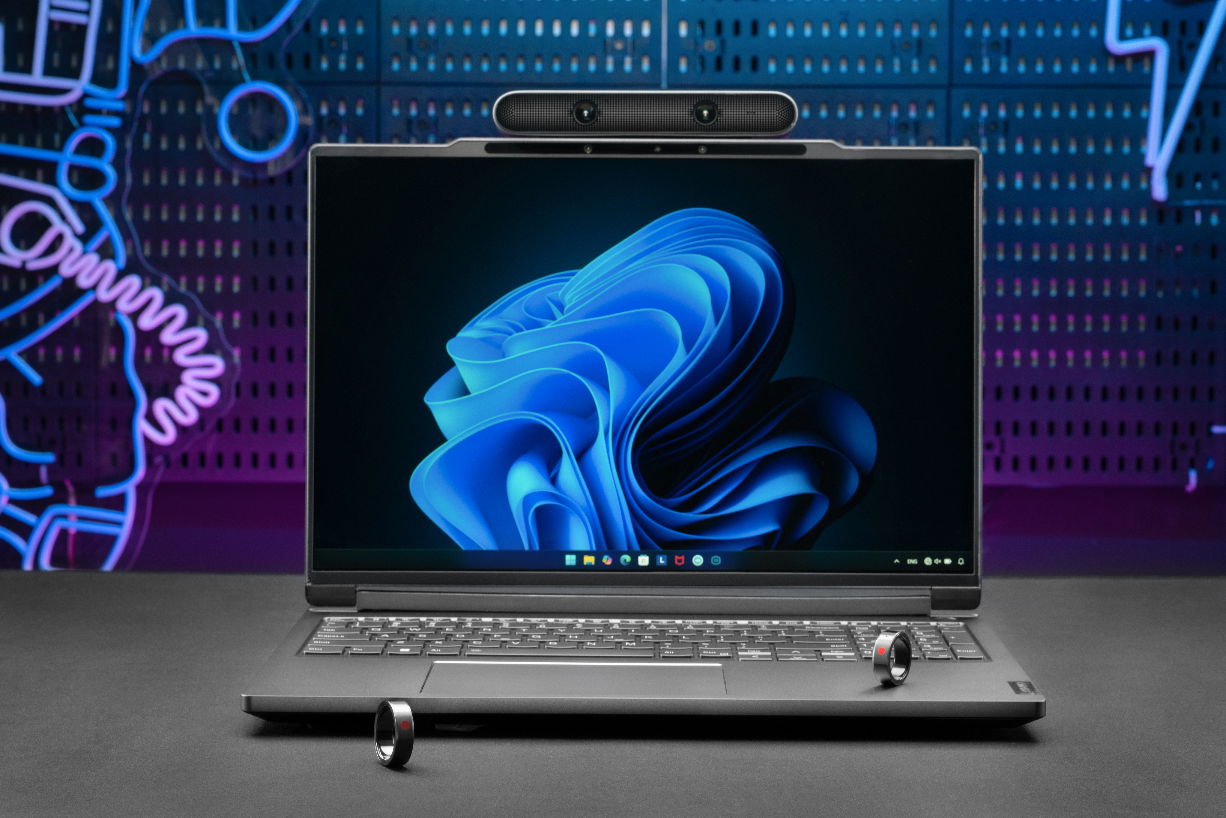
The final MWC 2025 proof of concept from Lenovo is their new Hybrid Dimensional 34-inch Curved Monitor Concept, which also takes 3D computing up a notch. It offers a real-time, glasses-free mix of 2D and 3D without needing to change settings or modes. Lenovo says this concept monitor can smoothly show both 2D and 3D content on the same screen without losing resolution. The 21:9 ultrawide screen provides an immersive 3D meeting experience, lets you work on designs in different dimensions simultaneously, and could even enhance entertainment experiences.
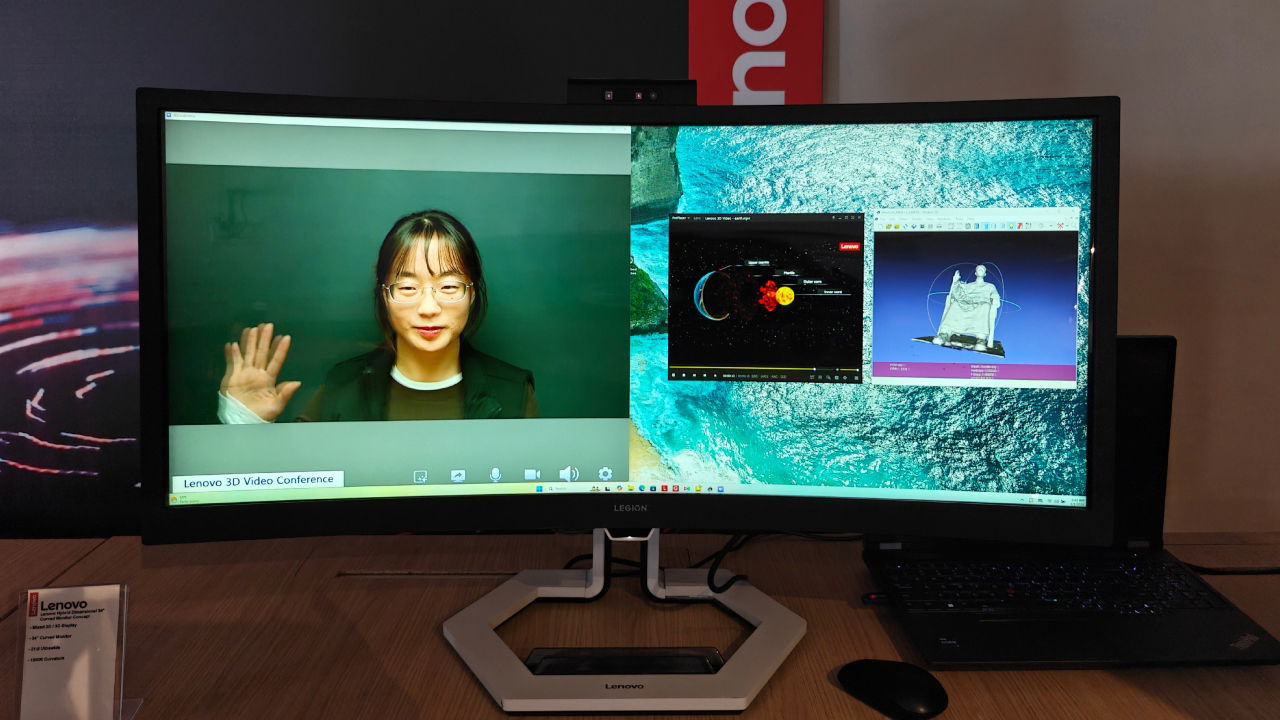
Lenovo did not play around when it came to concept devices at MWC 2025. You can also read about their ThinkBook and ThinkPad announcements and their Yoga and IdeaPad announcements here on CGM. Mobile World Congress 2025 will take place in Barcelona, Spain, from March 3 to March 6, 2025. Stay tuned to CGMagazine for more MWC 2025 announcements here.
